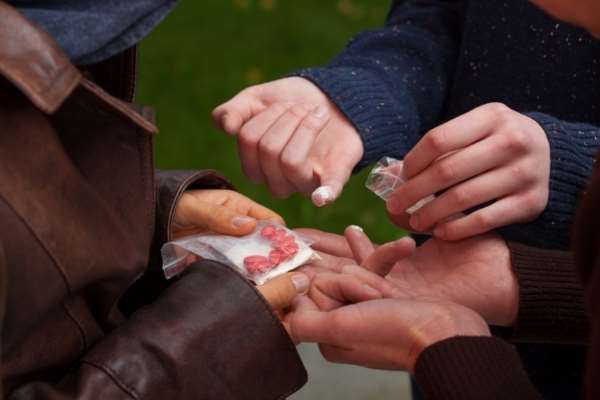When you can give up something any time, as long as it’s next Tuesday – Dr. Lemuel Pillmeister
My husband has lost interest in his work. He is always getting irritated. He is not the same these days. He seems to be having low moods. He is either locked up in the room or walks out when I talk to him. He shuns me, looking me in the eye. Every morning immediately after waking, he calls and goes out to meet his friend. I’m worried about his change.
Do you face a similar issue? Do you think your husband, or any other close family member may resemble the person above? Have you done anything to help them? What’s holding you from helping yourself and your loved one?
If your story is similar to the above example? One of the reasons for the behaviours can be that they are in some serious situation. Maybe they have no clue on how to help themselves? You may need to investigate to find out if they are addicted to drugs, substances and or alcohol.
If it’s addiction, how can you help them?
Let’s start by understanding drug addiction.
What is Drug Addiction?
Drugs or substance addiction could mean he is abusing heroin, cannabis, methamphetamine, commonly known as Ice or other drugs. People usually start on drugs out of curiosity. They may have seen their peers using and sharing their “good” experiences”, which are generally very exciting and inspiring. Some people could see it as a hotspot way to handle their crisis, stress and problems.
Yet some, especially young people, think it’s a stimulant and helps to boost their entertainment life and social relationships.
The myth is these people believe they have control and can stop “when and if they desire”.
The fact is NO, they lose their control gradually and succumb to it. Small doses are not fulfilling, oral methods are not appeasing and occasionally becomes frequent. These people fear support or help and tortoise themselves. Yet, despite, there’s fear of dying and candidly may allow others to help.
What Are the Signs of Addictions?
The signs of drug addictions may not be the same for all. For example, people addicted to different drugs or substances may respond differently physically, socially, behaviourally, thinking and feeling.
Generally, most addicts are likely to have
- bloodshot or watery eyes,
- runny or bloody noses and
- may avoid face-to-face communications.
They may have.
- stomach cramps,
- sweat,
- feel feverish,
- headaches and
- experience tremors, seizures and lose coordination.
Some of them could
- vomit frequently,
- lose appetite and not be hungry,
- and often complain about the food to steer away from eating.
- People addicted to drugs may to more than one doctor to get prescriptions for the same drug or problem.
- People who are ‘hooked’ to drugs could be confused, depressed and helpless.
- Their need for the number of drugs increases to ensure they achieve the same or better effects.
- An addict could appear unkempt and dirty.
- They can neglect self-care and persona because of low self-image and thoughts of failure.
- They may use paraphernalia to inhale or inject drugs on their arms and thigh leaving puncture marks or blood clots which they will cover up with their dressing.
- They can often have trouble doing everyday things like cooking or working, keeping to schedules, sustaining interest, and completing tasks.
- They have difficulties getting employment and sustaining their work.
- Commonly, people on drugs can easily be irritated or agitated, leading to poor impulse control to fight temptations and aggression.
- They may refrain from social relationships, attending events and prefer to isolate themselves in their homes.
- Although most addicts “play” drugs in the safety of their homes and their locked rooms, they may be highly tensed and constantly in fear, hallucinating to hear the footsteps and voices of enforcement officers.
- They can be vulnerable to suicidal thoughts to escape the law.
- People struggling with addictions are continuously obsessed about the drug:
- how to get more,
- when to take it,
- the good and bad feelings of taking drugs,
- and the after effect.
- They can lie, steal and manipulate to purchase the drug.
Although drug addicts may know their habit is causing psychological, social, and physical harm to themselves and others, they can’t stop using the drug, even if they want to.
Most addicts may have thoughts to stop using but may not know-how. They have a hard time giving themselves limits and expecting to stop or only use “so much”, but they can’t stop but end up using twice that amount.
How Can a Person Overcome Addiction?
Those addicted can overcome the temptation for drugs with support and care. With their loved ones showing concern, understanding, unconditional support and compassion, they can be encouraged to recover and to stop the abuse.
People coming out of addiction are motivated when they know their family and friends love them, talk and share their thoughts and feelings openly and are assured support in their journey to recovery.
Letting a person addicted to drugs open up discussions and listening to their stories can inspire them to be responsible for their change.
Drawing them over can give them hope and belief to change, knowing that people are compassionate instead of shaming, criticising, and constantly surveillant.
Addicts respond well to positive talks, verbal and physical encouragement and affirmation for every attempt to recover whilst lecturing and nagging can be a put-off.
People helping them need to understand recovery takes time and pressuring immediate change may be harmful.
Loved ones do hold a great deal of influence in the addicts’ struggle to recover.
People, especially spouses, intimate partners, children and parents, counsellors may find themselves in a co-dependent relationship. They need to be aware and overcome their own emotional problems without letting their desire to help and show love “help” foster the addiction and be damaging on a long-term basis.
Now, let’s help you to help your loved ones. Pick up the phone to reach out to us or email us at [email protected], and learn more about who we are on our About Us page. Most often, family members want to help but are lost. We can guide you to make an informed decision on how to hold hands with your loved one to recover and stop the habit.












